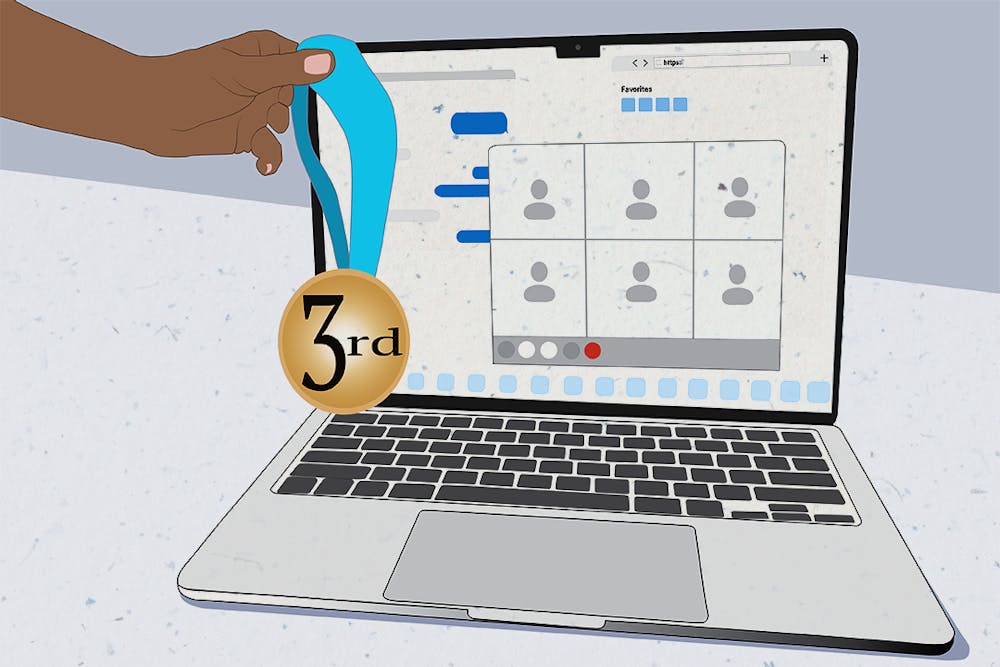Coffee shops, parks, libraries, museums and community centers — what do these places all have in common? They’re not your house or your workplace. They’re “third places.”
The idea of third places was developed by sociologist Ray Oldenberg, who characterizes these places as arenas of public relaxation in which people can connect outside the dominion of their household or the pressure of their workplace. Oldenberg opines that common spaces free from expectations foster connection among communities as well as breed individual well-being. Even nonverbal communication with those in a public space, like reading the same museum exhibit plaque or running the same trail, connects people.
For most college students, the workplace (where academic assignments are completed) and third places overlap. Escaping Davis Library (already a third place, technically) means writing papers in a crowded coffee shop or tackling a problem set in the quad. While seeking a change of scenery isn’t necessarily a bad thing, true third places are diminishing quickly.
However, blending schoolwork with third places is not college students’ greatest transgression. Instead, it’s our redesignation of the internet and social media as our third place. Despite living in a walkable community with hundreds of interest-based student groups and communal spaces around us, we have turned to our phones to find communities outside of class and home at alarming rates: Business Insider found that for decades, Americans reported spending roughly 6.5 hours weekly with friends. However, this number dropped by 37 percent from 2014 to 2019. With smartphone ownership passing 92 percent in 2022, it’s apparent that in-person communal spaces are being replaced by social media.
While engaging in mindless activities on our phones after a long day is relaxing, it also is a sneaky replacement for human connection. Students may not actually believe that commenting on Instagram or participating in virtual sports-betting groups is equivalent to in-person interaction, but it often unintentionally replaces it in people's daily lives.
I, too, am guilty of this behavior. The "community" I find on my phone, among people who share my admiration for a particular influencer, for example, isn't genuine. It lacks tangibility, and I don't engage with anyone in that group face-to-face. What's worse, I may not even leave my couch.
Finding community online as your only third place also removes us from the discourse of everyday life. Social media messaging generally negatively affects mental health, and seeking community only on the internet groups you choose to subscribe to encourages the kind of groupthink that has become so damaging. Very few people know how to politely disagree or have a civil conversation about a sensitive topic in real time, and the use of social media as a major public space has generated a need to either agree with the masses or immediately cancel those who don’t. Face-to-face interaction is dwindling with the decreased use of in-person third places, and divisiveness and exclusivity are growing where social belonging used to exist.
On Tuesdays and Thursdays after I leave Peabody Hall, I often visit Carolina Coffee Shop for my second caffeinated drink of the day. When the barista compliments my ring or asks how to pronounce my name correctly, the third place reveals its benefits. That five-minute connection fosters more belonging than my hour of TikTok scrolling. More significantly, though, the mere opportunity to meet an amazing professor or see someone reading my favorite book reflects the power of in-person communal spaces. You never know what or who you’ll encounter, which is an element absent in social media.
Although it seems like a chore to find and utilize a third place, Chapel Hill provides ample opportunity to connect. Ackland Art Museum, any of the variety of businesses on Franklin Street, the gym, parks, community service spaces or any student club embody third places. You don't have to delete social media and start forcing conversation with strangers. Make an effort to find some community that isn’t on a social media app. It’s good for you.



